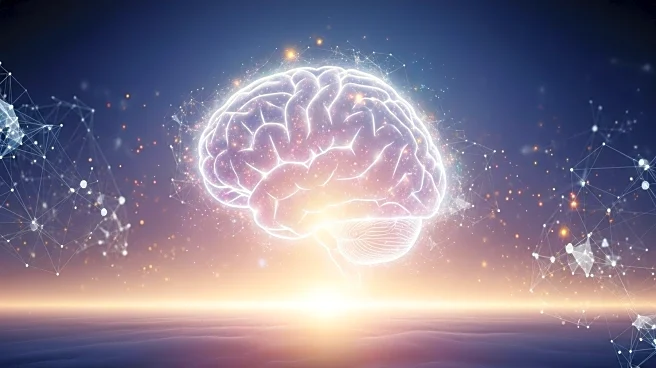What's Happening?
A study published in Science Advances investigates how emotional events enhance memory retention. Researchers found that mundane memories gain extra sticking power when linked to significant events, such as surprising or rewarding experiences. Emotional salience can stabilize fragile memories, suggesting that the brain prioritizes moments with emotional weight. The study involved 650 participants and used artificial intelligence to analyze data, revealing that the brain uses a sliding scale to decide which memories to preserve. Emotional events can enhance both proactive and retroactive memories, depending on their impact and similarity to the pivotal event.
Why It's Important?
Understanding the mechanisms behind memory retention could lead to improved treatments for memory-related issues and educational strategies. By harnessing emotional salience, educators could enhance student retention of complex concepts. Clinically, this research may offer new approaches to rescuing weak memories or managing trauma-related disorders. The study provides insights into cognitive neuroscience, potentially influencing therapeutic practices and educational methodologies. It highlights the brain's selective memory processes, offering a foundation for future interventions aimed at strengthening or weakening specific memories.
What's Next?
Future research may focus on developing strategies to leverage emotional salience for memory enhancement in educational and clinical settings. Scientists could explore the application of these findings in real-world scenarios, such as improving learning outcomes or addressing memory-related disorders. The study's insights may lead to new cognitive therapies and educational tools, emphasizing the role of emotional engagement in memory retention. Researchers may also investigate the broader implications of emotional salience on cognitive processes and mental health.
Beyond the Headlines
The study prompts ethical considerations regarding the manipulation of memory through emotional engagement. While enhancing positive memories could benefit learning and mental health, the potential to weaken distressing memories raises questions about the ethical boundaries of cognitive interventions. The research may spark discussions on the balance between therapeutic benefits and ethical concerns, influencing future guidelines for cognitive therapies. Additionally, the study highlights the complex interplay between emotion and memory, offering a deeper understanding of human cognition.








